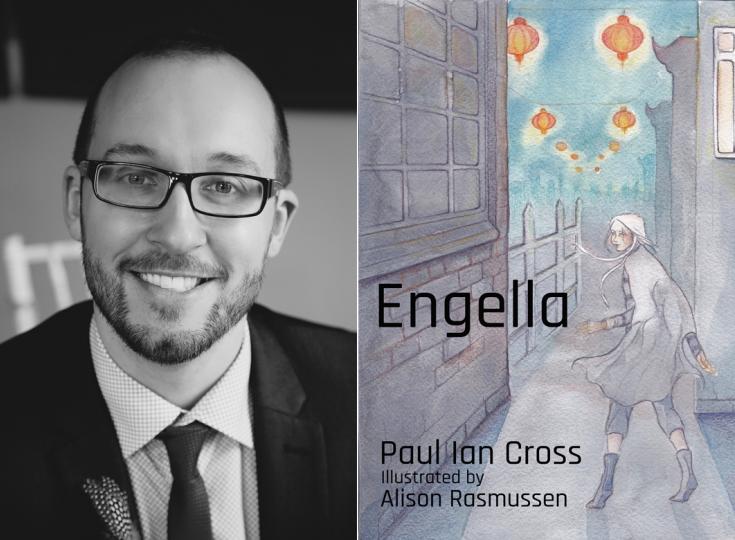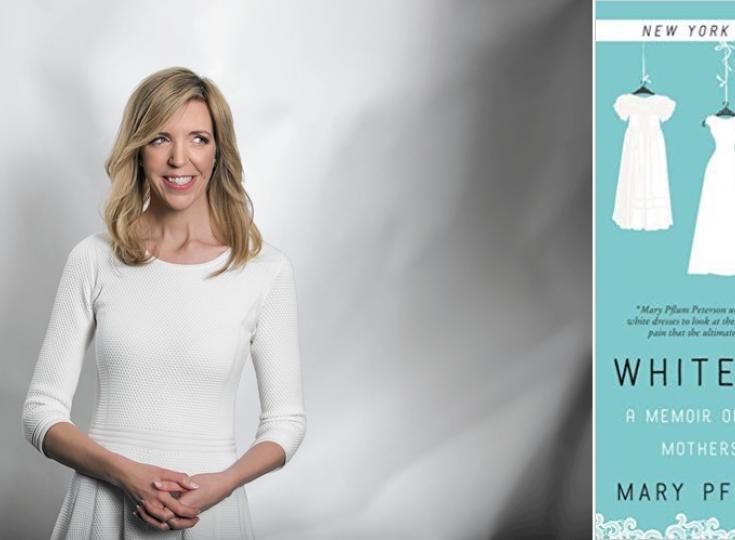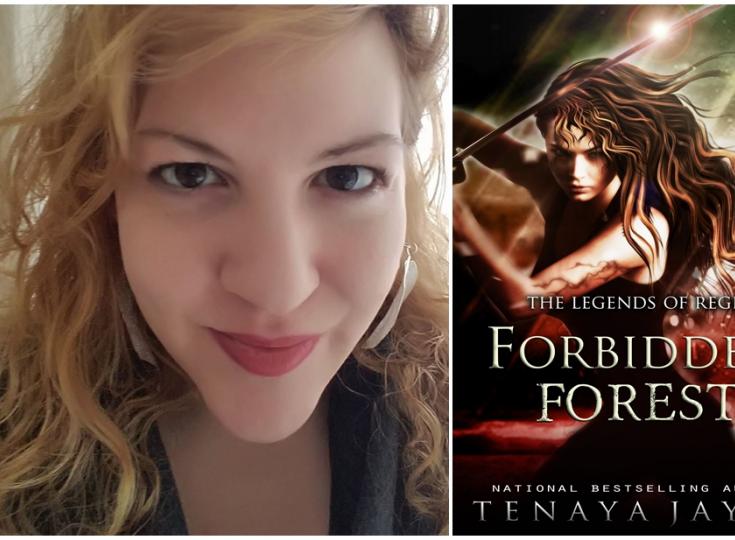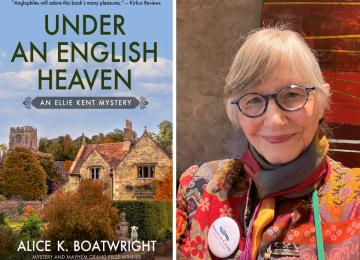P.H. Figur - Your Home for Thrillers
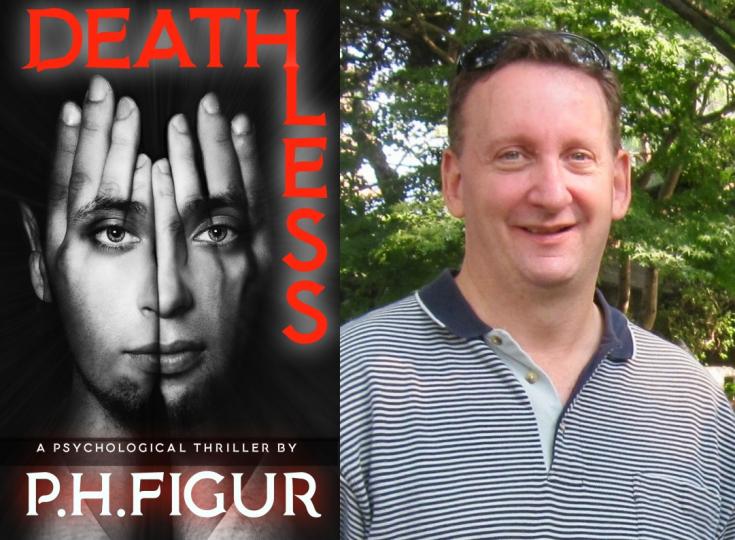
P. H. (Peter) Figur grew up in Massapequa, a small New York town located on Long Island in the southeast corner of Nassau County. After graduating from C.W. Post College, he spent the next 35 years working in the accounting/auditing field for three multi-national companies. In 2013, Peter started writing stories about his travels around the world to over 30 countries and his passion for music and sports. But the more Peter wrote, the more it drove him towards an even more significant project, to start writing an autobiography entitled "Life Sentence", which is still a work in progress. Peter has self-published three novels: “The New America” which is a political thriller which takes place in the future in 2045 after WWIII; “The Divinity Complex”, a psychological thriller about a female serial killer whose gender is hidden until the end of the story; and, “Killen” which is a domestic suspense story about two brothers, one of which kills their parents and tries to pin the murders on his younger brother. Killen was based on a short story entitled “Brother Henry” which received an honorable mention award from Writer's Digest. All three novels can be found at www.phfbooks.com. After so many years, Peter finally found his passion. Some would say it's a shame to find your passion so late in life. But if you asked Peter, he would tell you that wasn't true. "You can't look at life that way. It's always better to find your passion late in life, then never finding your passion at all." As our Author of the Day, he tells us all about his book, Deathless.
Please give us a short introduction to what Deathless is about.
Deathless is about a man named Alex Hansen who had it all—wealth, success, and a loving family. That was true until he found out Robert, his son, four of his friends, and two teachers mysteriously disappeared during a class trip to see the Northern Lights in Norway. At that moment, Alex’s life turned upside down.
The Norwegian Investigation Service, along with the U.S. Embassy in Oslo, dragged their feet during the investigation and disclosed little information to the public. Alex flew to Norway, on behalf of all the families, to meet with the local authorities. But all he got was the runaround. The investigation came to a standstill, and Alex lost hope he would ever see his son again.
But then a miracle happened.
After a three-year absence, the kids started coming home one at a time. They returned with no recollection of what happened during their disappearance. Someone had erased part of their subconscious and implanted hidden instructions with separate assignments for each of them to conduct deadly missions.
All of them, including Robert, were walking time bombs.
When Alex found out about Robert’s mission, it was too late. His son had gone missing again. A trigger in Robert’s subconscious had been activated, programming him to kill. Alex found himself in a race against the FBI to find Robert. He thought he could talk some sense into his son and stop the carnage without anyone being hurt. The FBI felt otherwise. They were under orders to shoot first and ask questions later.
There was only one question that remained.
Who won the race?
Tell us more about Alex Hansen. What makes him tick?
Alex is a third-generation Hansen. He is the current owner of the family business, which has roots reaching back to his native homeland of Norway. A lot of who he is comes from his grandfather Jakob and father Aksel. Alex has an insatiable work ethic and is driven to succeed. He is confident and proud. He always seems to be in control his emotions, takes on all challenges, and voices his opinions. Nothing stands in his way. In the book, Alex is quoted as saying, “My grandfather and father were strong-minded and believed when you face adversity, the only option is to tighten your belt and figure out a way to get through it. You can either wait for help or take action. The sooner you learn that, the sooner the problem will go away.” Alex is the rock of the family, but as time goes by, even he starts to lose hope and wonders if he will see his son again. Throughout the book he bends and tries his best not to break. He struggles with this all the way to the end.
Why did you pick Norway as the scene of Robert’s disappearance?
A couple of years ago, I went to Norway with my wife to see the Northern Lights. We stayed in Tromsø, north of the arctic circle. On our second night, we got a tour guide to take us north of the city. We drove for an hour into the middle of nowhere, turned off onto a dirt road, and stopped in an open field. We got out and waited a few minutes, and the Northern Lights appeared out of nowhere. After snapping some pictures, I stood there in the open field. It was so peaceful and quiet. I felt like I was a million miles away from civilization. At that moment, I had a random thought. “If I was a murderer, and wanted to get rid of a body, this would be the perfect place.” That’s where I got the idea for the scenes in Deathless where the kids chase the lights. It’s based on my own experience. The only difference is no one was kidnapped or murdered…as far as I know;)
The idea of someone’s mind being reprogrammed features quite prominently in this story. Why did you take this approach?
In Deathless, I took some creative liberties being that it is a work of fiction. Here was my thinking. Anyone abducted for a long time never comes back the same. They either return somewhat normal with deep psychological scars, or they return as a completely different person. The kids in the book have to deal with both. When they return home after three years, their subconscious is split in two. One side is a normal personality, and the other side is a ruthless killer. I figured it would be hard to “brainwash” someone and convince them they are a killer. It seemed easier to carve out a portion of their subconscious and insert the killer instead. That’s the great thing about fiction; you can bend the rules as long as it is believable to the reader.
Which of your characters was the most challenging to create?
Alex’s son Robert Hansen by far. Again, because of his split personality. In the book, Robert’s alter ego doesn’t have a name. He is referred to only by a number, #15. The two egos are polar opposites. Any scenes with Robert and #15 were tricky because I had to make sure the reader knew which one was conversing. The dialogue and interactions had to make sense to avoid any confusion.
Interesting cover. Please tell us more about how it came about.
For my first three books, The New America, The Divinity Complex, and Killen, I contracted someone halfway around the world to create the book covers. It cost me quite a bit of money. As time passed, I realized they weren’t good enough. That’s when I decided to do the covers myself. It was cost-effective, but it also gave me creative freedom. For Deathless, the picture on the cover took days to find. I think it works well because it shows someone with a split personality which ties directly into the story. As far as the title, it was too long of a word for the cover. I just decided to run half the title down the side, linking up the letters in the process. I’ve learned that if you want to sell books; you need to capture the reader’s attention. I think the cover does that very well. I guess the old adage is true. You can “judge a book by the cover.”
Are you a plotter or a pantser? Did you plan out this story before you started writing, or did a lot of it just happen along the way?
I am a pantser and proud of it. I have tried plotting books but can’t do it. The way I look at it is an hour spent outlining is one hour less of writing. It goes the same for reading other books. I’d rather be writing. My stories just seem to be a stream of consciousness. Once the faucet is on, it stays on for a long time. Also, it’s impossible to plot an entire book. A lot is going to change as you write the story. If I come up with a unique twist later on, I go back to the previous chapters and adjust. I believe taking this approach makes the final product that much better.
You used to work in the accounting/auditing field for multi-national companies. How did this influence your writing?
Great question. Being in accounting/auditing for over three decades has enabled me to travel to 35 countries. I’ve met some very interesting people and taken in some unique experiences. I’ve visited the concentration camps in Auschwitz, walked through the Taj Mahal, and stepped foot into North Korea at the DMZ. I’ve traveled with armed bodyguards under threat of being kidnapped, been offered bribes from foreign executives, and rubbed elbows with athletes and celebrities. I could go on for days if I had the time. All those people, places, and experiences help me develop characters and storylines.
When starting on a new book, what is the first thing you do?
I’m going through the process now. The one thing I learned is you can’t force it. If someone locks me in a room and tells me to write a book, it’s not going to be very good. A story has to be organic, and the ideas have to come naturally. It could take days or months. I’m not going to commit to a story until I convince myself it’s good. But before I start any project, the last thing I do is bounce it off of my wife. She’s honest and to the point. She’ll tell me if it’s crap. If you want honest feedback, then seek out the most critical person you know. There’s a saying I’ve heard in business, “Don’t be afraid to call the baby ugly.” It also applies to writing books. Sometimes your book is ugly; you just don’t know it yet.
Do you have any interesting writing habits? What is an average writing day like for you?
When I am in full writing mode, you can find me in my man cave. I have a standing desk with an iMac computer with three 32 inch screens that I can flip back and forth between landscape and portrait modes. If I get tired of typing, I sometimes dictate the story. As far as habits, I use voice recognition software on my iPhone to listen to what I’ve written. I found an old man’s voice that sounds like someone narrating an episode from Game of Thrones. It is the perfect cadence for my writing style. You will be surprised how much you can find when you listen to someone else reading your work.
What are you working on right now.
I am looking to write something that is a non-thriller. I just want to take a break. I think it will stretch my creativity and make me a better writer. I have a couple of things I’m contemplating, but as I said earlier, it’s a process. When the right project comes along, it will let me know.
Where can our readers discover more of your work or interact with you?
They can go to my website at www.phfbooks.com. There they can find links to all of my books on Amazon, and they can also sign up for my newsletter. I’m also on Good Reads at www.goodreads.com/peterharlanfigur. If all else fails, they can always email me at [email protected].
